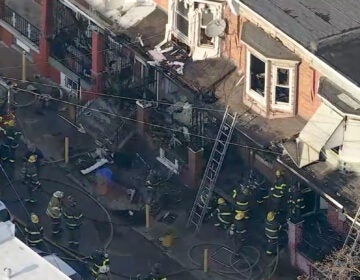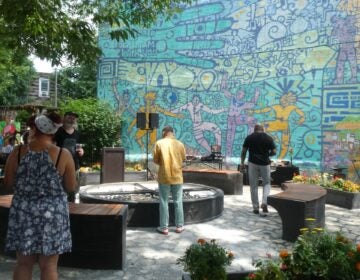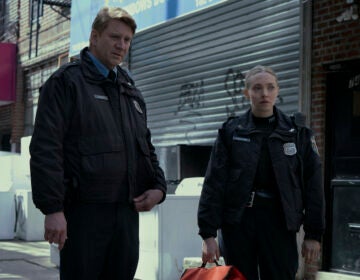Awilda Ocasio: The ‘Mother Teresa of Kensington’
Two years after her death, a neighborhood activist's legacy of love lives on.

Awilda Ocasio’s sons Edgardo Colón (left) and Marco López look up at Ann Northrup’s “Heart of Kensington” mural at Kensington and Allegheny Avenues on Feb. 25, 2019. Ocasio is pictured at the center of the mural surrounded by children. (Solmaira Valerio/Kensington Voice)
This story originally appeared on Kensington Voice.
—
“HELLO, MY LOVE!” — WERE THE THREE WORDS that sang from Awilda Ocasio’s lips when she entered a room.
“She loved everyone… Everyone loved her,” said Judi Moore, the children’s librarian and branch supervisor at McPherson Square Library. “I knew her for 15 years, and I don’t remember anyone ever being mad at her.”
Ocasio, who worked for 12 years at Impact Services and spent her life fighting for neighborhood improvement in Kensington, died of pneumonia in April 2017. But today, her memory lives on — in the hearts of those who knew her from the neighborhood and in the center of Ann Northrup’s “Heart of Kensington” mural at Kensington and Allegheny Avenues.
“She was the heart of Kensington,” Northrup said.
In the mural, Northrup said Ocasio represents a charismatic artist who brought the children together and mesmerized them with color. She is pictured surrounded by children and holding a palette of paint. She is also framed by a large heart — a design element often overlooked, said Northrup, — which arches from the edges of the El and borders the scene.
Northrup wanted a prominent community member to be the face of the mural, and the community told her Ocasio was “the one.”
“She was a big part of the connection between the community and social services,” said Marco López, Ocasio’s youngest son. “Still to this day, people tell me that the neighborhood isn’t like what it used to be.”

Ocasio left behind five children — Erica, Edgardo, Jessica, Vicky, and Marco — and countless close relationships with Kensington residents, who noted the love, energy, and positive influences Ocasio had on Kensington throughout her life.
“She was the mom that everybody would look to have,” said Dennis Payne, a Kensington resident, and friend of Ocasio’s.
Led by Councilwoman Maria Quiñones-Sánchez in May 2017, Philadelphia City Council renamed the 3000 block of F Street between Indiana Avenue and Clearfield Street in Ocasio’s honor. Now called “Paseo Awilda Ocasio,” it recognizes Ocasio’s dedication to the Latinx community in the neighborhood.
“Up until she couldn’t work anymore because of her health situation, she was out here fighting for the community,” López said.
Ocasio organized community clothing drives, block parties, and movie nights. She helped facilitate Playstreets events, a collaboration between community members and the city to close streets down to cars during the summer, so children have space to play. She also advocated for the city to implement a free lunch program for children at McPherson.
“Her role was more than just a job description,” López said. “It was a personal connection that she had to these people and this neighborhood.”
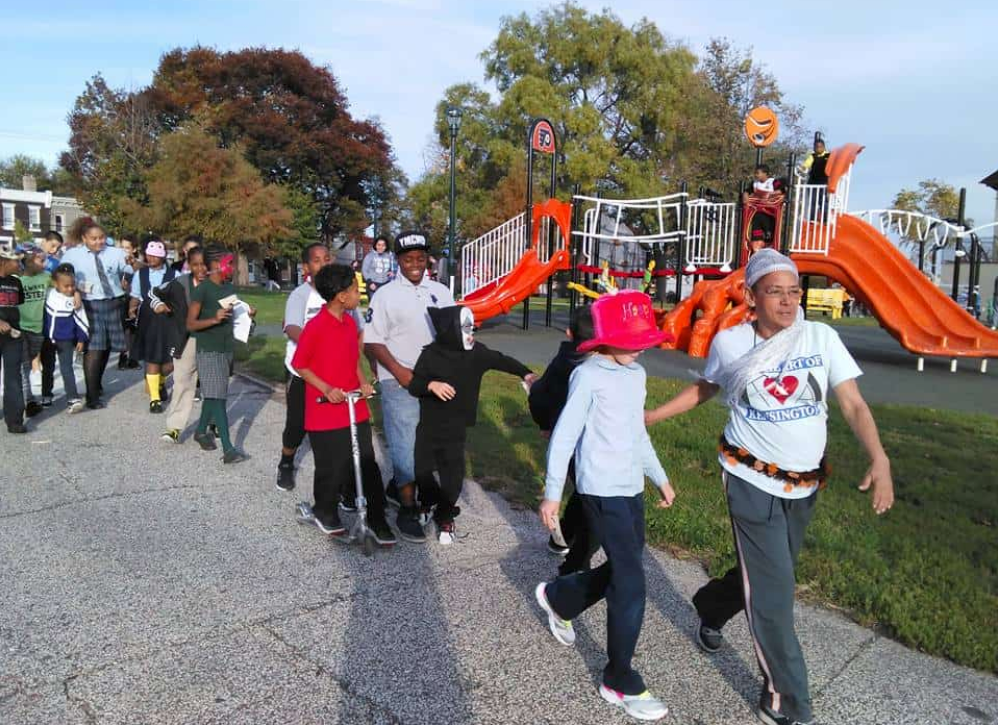
The feeling was mutual — children from McPherson Square Library loved Ocasio, said Moore. Those who didn’t know her name referred to her as the “karaoke lady,” because she hosted karaoke nights at the branch. They often turned into dance competitions — which Ocasio was quick to join, Moore added.
In the days before her passing, Ocasio kept busy by planning an annual Easter event for the kids at McPherson, which always included a special appearance from the “Book Bunny.” Even in sickness, she delayed going to the hospital because of her dedication to the children. She passed away the night of the Easter event, Moore said.
A few days after Ocasio’s death, Kensington neighbors honored her memory with a vigil. Edgardo Colón, her oldest son, was touched by their expressions of gratitude. He said that one woman referred to Ocasio as “the Mother Teresa of Kensington,” while another man told him that Ocasio had “saved him from homelessness.” Instead of giving the man food or money, she set him up with a job at Impact Services.
“She’s unmatched,” Colón said. “She was doing those things because it felt authentic to her.”
Indeed, Ocasio was a problem-solver in Kensington, always bringing a firm but loving approach to the neighborhood.
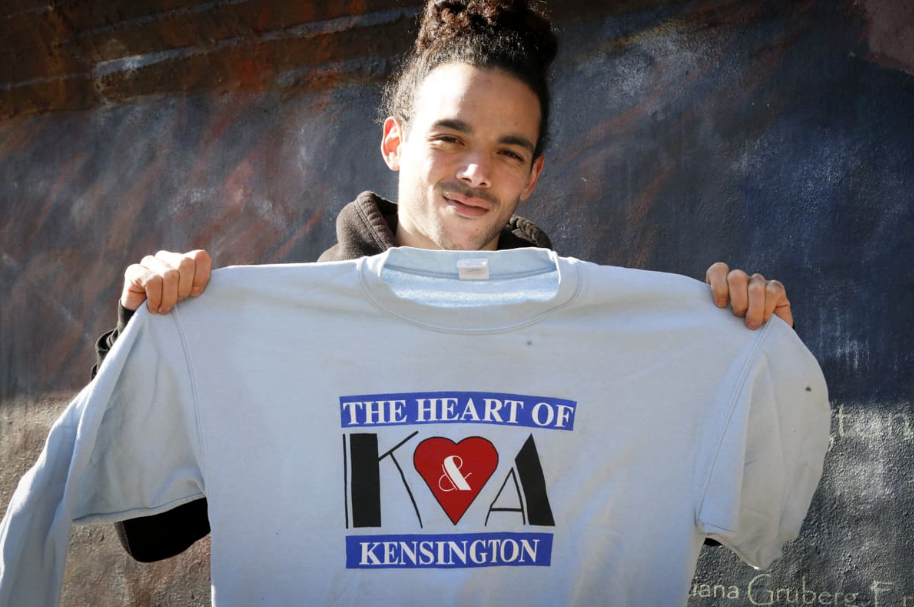
“She was a hardliner,” said Payne. “She wouldn’t tolerate anybody with a syringe or under the influence of a syringe in the area when she was ready to host an event.”
Still, she was mindful of the language she used when addressing people using drugs in the neighborhood, said Moore.
“I remember her saying, ‘Let’s not call them, ‘junkies,’ because they’re not ‘junk,’” Moore said.
Ocasio was not the type to give up on a person or place because things got hard, added Moore, — especially the neighborhood for which she was such a champion.
“Her legacy is spreading love throughout the broader community, where love wasn’t available to them,” Colón said.
“She did a lot for the short amount of time she was here on earth,” said Payne. “If we had just 10 Miss Awildas, Philly would have no problem with anything.”
WHYY is your source for fact-based, in-depth journalism and information. As a nonprofit organization, we rely on financial support from readers like you. Please give today.


